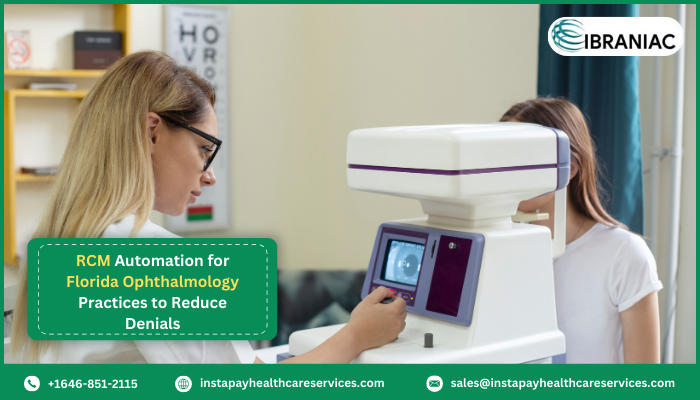
How Pennsylvania’s Workers’ Compensation Rules Impact Chiropractic Billing
Chiropractic care is essential for the recovery process of many injured workers in Pennsylvania. However, billing for chiropractic services under Pennsylvania’s Workers’ Compensation system can be a complex and often frustrating process. Understanding the nuances of the state’s regulations, and the common challenges that come with them, is critical for chiropractic practices that want to comply with the regulatories and ensure timely reimbursement.
The Denial Dilemma in Florida Ophthalmology
Denials are more than just a nuisance—they’re a revenue leak. Florida ophthalmology practices are particularly vulnerable because of:
- Complex procedural coding (e.g., intravitreal injections, glaucoma surgeries, retinal imaging)
- Frequent payer policy changes, especially among Medicare Advantage plans
- High patient turnover due to Florida’s large retiree population and seasonal residents
Without real-time eligibility checks, accurate coding support, and automated claim tracking, even the most diligent practices are leaving money on the table.
What RCM Automation Actually Does—And Why It Matters
At Instapay Healthcare Services, we’ve seen firsthand how RCM automation transforms billing performance. Here’s how:
1. Real-Time Insurance Eligibility Verification
Before the patient even sits in the exam chair, automated systems verify their coverage—checking for copays, deductibles, and authorization requirements. This drastically cuts down on eligibility-related denials, which are common in Florida where patients frequently switch insurance providers.
2. AI-Powered Coding Assistance
Ophthalmology billing is uniquely complicated. Whether it’s differentiating between CPT codes like 92014 vs. 99214 or ensuring modifiers (e.g., -25, -59, -RT, -LT) are correctly applied, automation reduces human error. Coding suggestions are based on clinical documentation and payer-specific rules, reducing rework and denials for “incomplete” or “inaccurate” codes.
3. Automated Claim Scrubbing
Our systems flag errors before a claim is submitted. This includes missing diagnosis codes, mismatched patient data, or bundling issues—many of which lead to first-pass denials from Florida Blue, Aetna, or CMS. This step alone can reduce denial rates by up to 30%.
4. Appeals and Denial Management Workflows
When denials do happen, automation triggers workflows that assign tasks to billing staff, generate templated appeal letters, and track resubmission deadlines. No more missed appeals or lost follow-ups—just faster turnaround and recovered revenue.
5. Actionable Analytics
Customized dashboards track denial patterns by payer, provider, and procedure. Florida ophthalmology practices can quickly identify recurring issues—like frequent denials for OCTs or visual field testing—and adjust documentation or workflows proactively.
Why Florida Practices Shouldn’t Wait
Ophthalmology practices in Florida are under increasing financial pressure. Between staff shortages, increasing overhead, and value-based care incentives, the margin for billing errors is razor thin. RCM automation doesn’t replace staff—it empowers them to work smarter, not harder.
At Instapay Healthcare Services, we specialize in ophthalmology billing for Florida providers. Our automated solutions are customized to handle the specific workflows and payer requirements of your practice—from South Florida clinics serving retirees to Central Florida practices managing high surgical volumes.
Want to see how automation can reduce your denials?
Let’s talk. Instapay Healthcare Services will audit your current processes and show you exactly where automation can make a difference.




